Industries That Require the Best Mobile Crane Operator Training
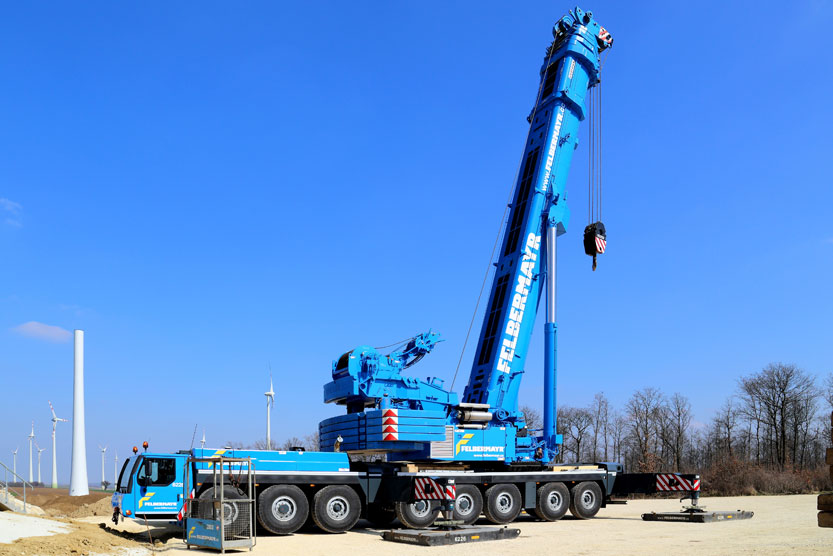
Cranes have been used to build everything from the Statue of Liberty to Las Vegas’ MGM Grand. Most large infrastructure projects couldn’t be completed without mobile cranes. No matter what area of the business you are in, every project needs qualified crane operators, riggers, and signalpersons who are trained in the latest safety practices and standards. The below is a list of the major players who employ qualified heavy equipment operators—industries that have high demand for certified crane professionals.
Need certification for you or your team? NCT is a nationally recognized crane certification school that offers open enrollment classes at locations nationwide and private classes for businesses at your site for you or your staff. Sign up today or contact us to book private classes for your crew.
Energy and Utilities
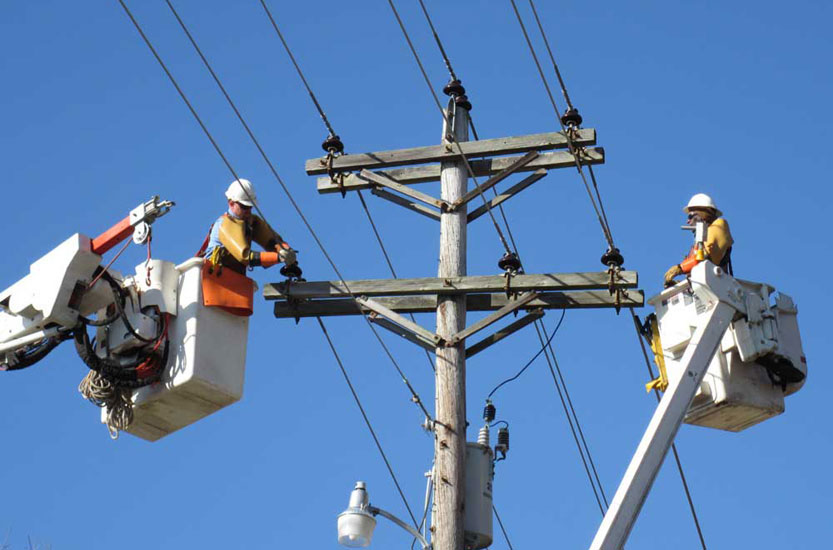
Energy and utility companies rely on mobile cranes for critical operations, and rely on NCT to train their new operators and prep their experienced operators for recertification. These heavy machines are incredibly valuable to the industry. Installation, maintenance, and general heavy lifting require speed, strategy, and skill.
Energy and utility-related projects involve effective use of cranes for working on:
- Power lines
- Wind turbines
- Farms
- Solar power
- Gas lines
- Water lines
- Phone lines
Smaller cranes with baskets are used to repair power lines and boom cranes are used to lift people and materials to heights of 180 feet or more. Although mobile digger derricks are used heavily in construction, a wide variety of different-sized derricks are used to complete telecom jobs.
Construction
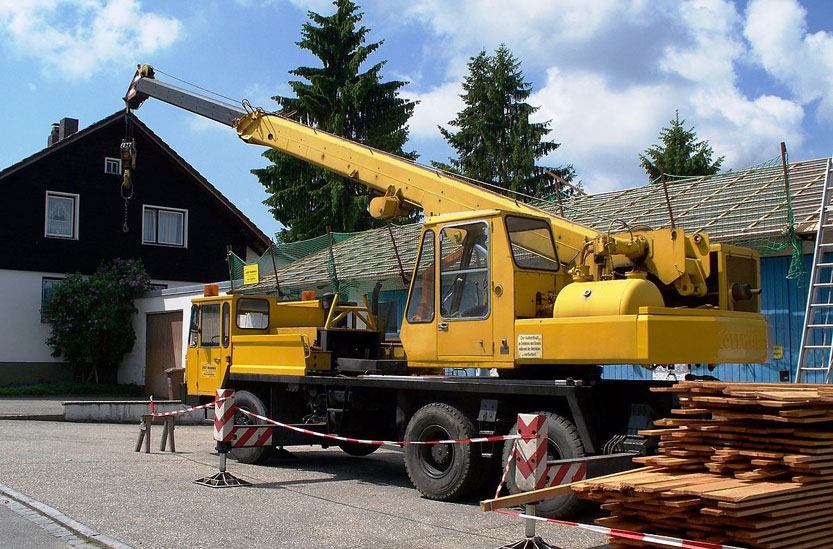
From high-rise buildings and offices to casinos and custom homes, mobile cranes are the workhorse of residential and commercial projects. You can walk onto any large construction project and find a crane of some kind.
The construction industry uses more mobile cranes than any other industry by far. Millions of dollars are spent every year on crane-operating courses to keep everyone on the site safe.
Cranes make it possible to handle difficult jobs like bridge construction or building freeway overpasses. They can fit in tight spaces for things like hoisting houses or working in between buildings.
Just about every type of crane is used in the construction industry, and companies always need NCCCO-certified operators with proper training.
Military
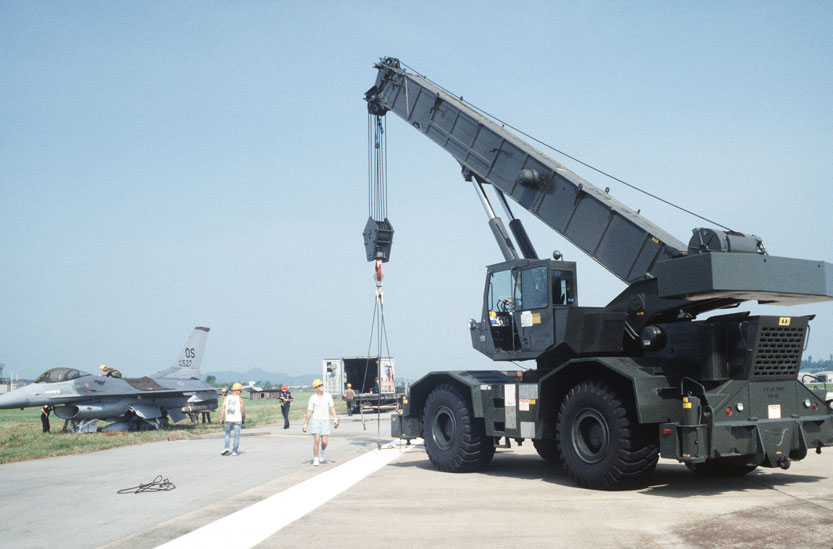
The military makes use of cranes—primarily truck-mounted and wheel-mounted cranes capable of operating attachments—for all sorts of applications. Armed Forces personnel use crawler cranes in quarries and for the construction of ports, but they also use a wide range of other cranes for offshore and onshore work.
Combat-specific use includes heavily armored cranes for material handling to support missions. As with every other industry on this list, the military also uses cranes to perform a variety of maintenance tasks and general construction for things like buildings and bridges.
Many of our crane operator training instructors are military veterans and understand what it’s like to adjust to civilian life. Operator and signalperson courses are just the beginning of an exciting new chapter!
Oil and Gas
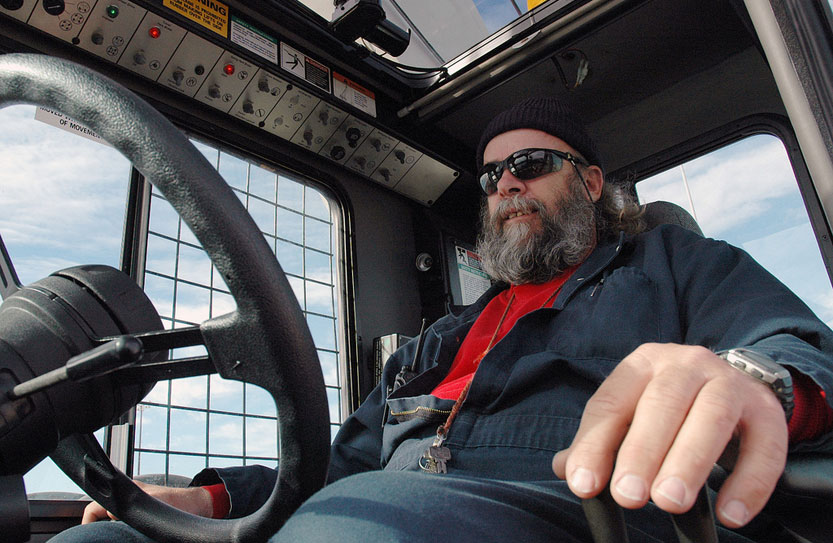
The oil and gas industry has many challenges, and mobile cranes are vital to daily operations. Facilities may require the use of mobile cranes 24 hours a day, 7 days a week, and heavy equipment needs to be lifted both on and offshore.
Hoisting takes place in different locations. Whether it’s a muddy oil field or developed land, the ability to travel and lift heavy loads is essential for installations. Telescopic crawlers are often used to break down smaller oil rigs because they don’t need the support of outriggers. They work alongside or in place of lattice boom crawlers and all-terrain cranes.
Rigs make work efficient and are easy to set up, and their portability allows operators to move around the site quickly. Crane operator training is incredibly important for oil and gas workers for safety reasons.
Mining
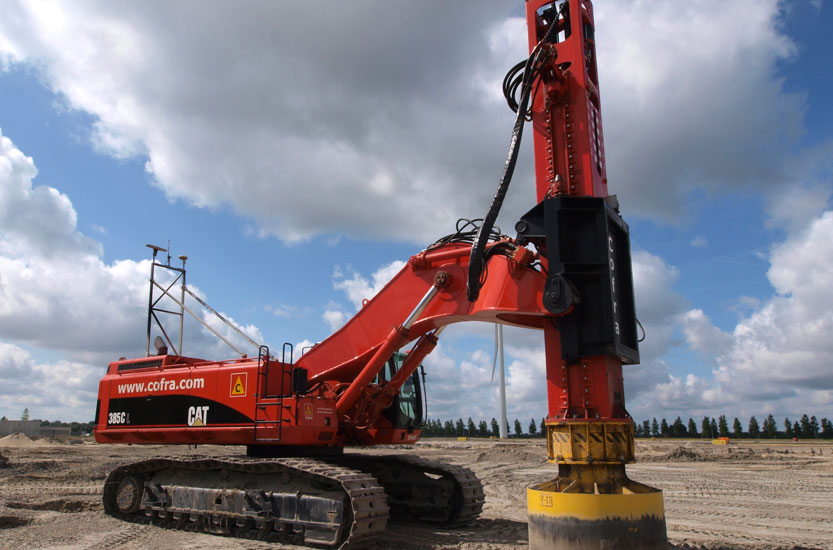
Cranes are a major part of the mining process. Mobile cranes on site do most of the digging and material handling. Earthmoving demands accuracy and agility, which is why digger derricks are used for backfilling and setting poles.
It’s easy to dig a 10-foot hole in soft sand, but harder soil and rock are more of a challenge. All-terrain crawlers are commonly used for:
- Lifting
- Loading
- Leveling
- Digging
Telescoping boom crawlers have tracks instead of rubber wheels so they can move slowly across uneven terrain. The telescopic arm allows drivers to manipulate the arm height and direction from the carriage.
Ports
The port industry mostly uses fixed cranes, but it also needs mobile cranes to be successful, including offshore crawlers and floating cranes. Often, rigs are used to move machinery and material. Cranes used at ports either have slip-resistant rubber tires or treads.
Mobile cranes move machinery and material in and out of ships. The flexibility of a mobile crane makes work more efficient because it’s easier to set up and easy to move around.
Cranes have the capacity to lift all kinds of bulk materials such as palette boxes, steel slabs, and plates. Crane operators also lift boats out of the water and salvage wreckage. Floating cranes for offshore work are designed to be partially submerged.
The only difference between many mobile floating cranes and other kinds of mobile cranes is that they are temporarily set on a vessel like a crane barge.
Waste Management and Recycling
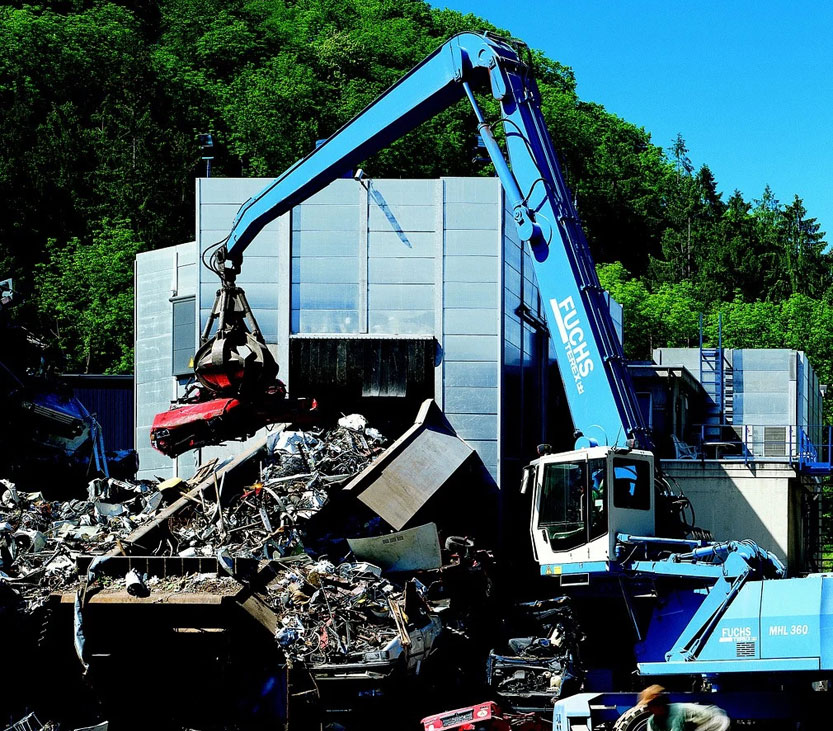
Waste management uses a variety of different heavy equipment at landfills, recycling centers, and waste management plants. Mismanagement of materials at these sites can have serious environmental consequences, and constant crane operator safety training is needed to avoid disasters.
Mobile cranes are used to move material around sites at landfills and yards. They take care of various operations like scrap handling and demolition. Waste-to-energy plants are increasingly using hybrid cranes that run on a combination of electricity and gas to improve onsite air quality. New models can also require additional crane operator training.
Iron and Steel Mill Manufacturing
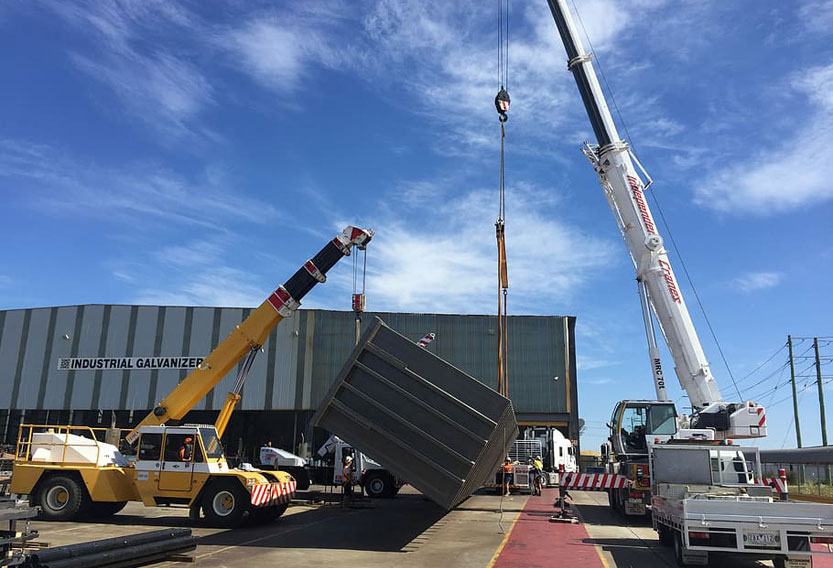
Mobile cranes are useful to transportation operations during the steel-making process. They’re needed to move material outside of the workshop such as scrap metal, which is often transported to steel mills by train.
Transporters are on a tight schedule, and crane operators need to move fast as time is money. Unloading rail cars needs to be done in a short amount of time. That’s where an experienced, certified crane operator is invaluable.
HVAC
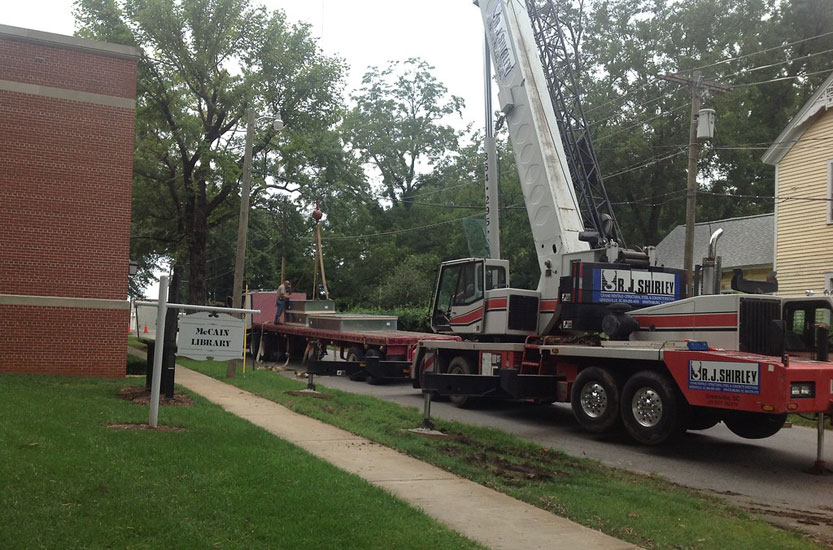
Heating, ventilation, and air conditioning (HVAC) units can weigh tons, and cranes are needed to install them. Accessibility is a big factor, which is why mobile cranes are ideal for doing the heavy lifting.
Several factors affect which kind of rig is right for the job. You might need a truck-mounted crane or an all-terrain crane. The choice depends on the height of the building and whether the HVAC unit is being installed from level pavement or if the ground is unstable. HVAC is a solid industry to get into for newbies who have just finished crane boot camp.
Entertainment and Film
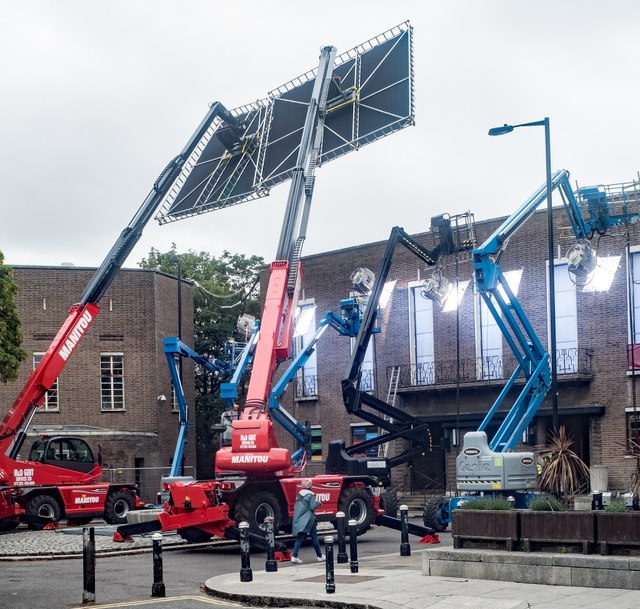
Mobile cranes have been used in the entertainment and film industries since the early 19th century in silent films. Setup and tear-down often need to happen within a few days for music festivals and sets. Cranes are critical for:
- Lighting installation
- Scaffolding
- Rigging cameras for aerial shots
- Setting up stunt sequences
Sometimes crane operator training graduates end up working with cameramen and directors. The crane shot—also known as the “ride off into the sunset” shot—is used to position the camera for the classic views you see at the beginning or end of movies and TV shows. Cameras on cranes are also used to get the right angle for wide shots of massive crowds..
Explore NCT’s Crane Operator Training
Certification and recertification are required for every operator and signalperson on the job. Operators must stay up to date on the latest developments to be at their best.
Now is the time to join the club! Enroll in NCT’s crane operator training courses to get your NCCCO certification. We guarantee that you will pass the written tests and fully prepare you to pass your practicals!




